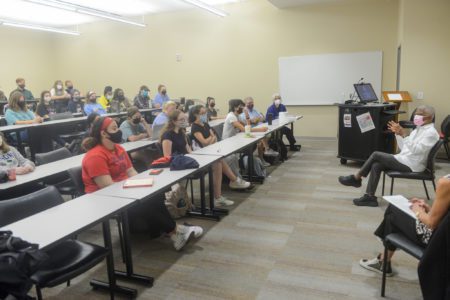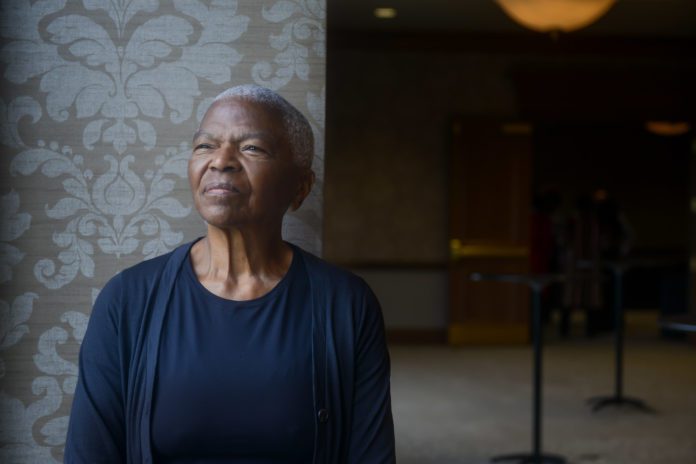Nashville native visited campus to celebrate Diversity Week, share her perspective with the Belmont community
Dr. Mary Frances Berry has devoted her life to the pursuit of knowledge and education.
She received her Ph.D. from the University of Michigan and holds more than 35 honorary doctoral degrees from a variety of institutions, alongside a large collection of other honors and awards. Currently serving as a Professor of History and Africana Studies at the University of Pennsylvania, Dr. Berry spent time on campus in late September to celebrate the University’s 7th annual campus-wide Diversity Week. While on campus, Berry participated in a variety of events to share her perspective with faculty, staff and students, including one intimate conversation with a small group of attendees where she shared her story and offered insight.
As a child, Berry lived in a children’s home with her brother and endured significant hardships–not entirely unlike the way orphanages are portrayed in the media, Berry told a group of students. She remembers her brother always crying because he was hungry and their mother visiting as often as she could while attending beauty school to better support her family.

Berry looks back on this time now, recognizing that this difficult environment without the consistent comfort of her mother’s love had a significant impact on her life. It made her incredibly persistent and resilient, she said, which would go on to serve her, and those who have the privilege of interacting with her, well in the future.
After their mother completed beauty school, Berry’s mother moved her family into an apartment with their uncle and his family. It was a small space to accommodate so many people–conflict was inevitable.
When Berry was just a toddler, her older cousin hit her in the head while they were playing in the yard. Instead of crying for help, she sat contently and cared for herself until an adult came calling. This earned her the nickname, Plankhead,” for her thick skull–literally and figuratively.
Berry has been fighting battles of injustice her whole life, with her curiosity and ferocity for truth driving every step. As a graduate student, she became involved with the anti-war movement and decided that if she was to understand the conflict in Vietnam, she must go herself. Her options were limited–she could enlist in the military or become a war correspondent. She chose the latter.
Not knowing how to come upon such a position, Berry sent the U.S. Pentagon a letter. They responded with instructions–solicit sponsorship by newspapers with enough subscribers to qualify. Berry began with the University of Michigan newspaper, The Michigan Daily, and continued to ask local papers all across southwestern Michigan. With enough sponsors, she went to Vietnam and was one of few women to step into the combat zone.
After recounting some of the stories that shaped her, she opened the floor for questions. She advised students to question everything they believe and read at least three news sources in order to seek truth. Dr. Berry also encouraged students to practice true activism and “show up” for their causes, just as she went to Vietnam to fight for her beliefs.



